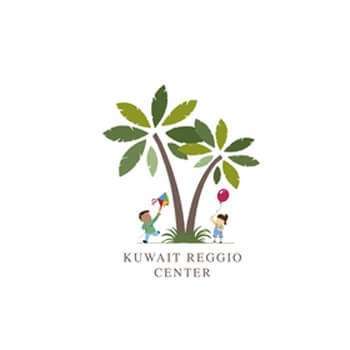Description
At Kuwait Reggio Center we are dedicated to helping children peacefully transition from home-life to the school environment. We believe that if a child has a positive first experience with school, they will become lifelong learners and scholars. Our staff will nurture, engage, and stimulate the natural wonder within your child. Parent involvement both inside and outside the classroom helps to build a strong sense of community that values everyone. This community sets the foundation for successful learning and enriches the school environment. Our staff works with parents in order to build a curriculum and place of learning that will best suit each child’s individual needs.Together, we encourage students to wonder, explore, create, and tackle new challenges. Children develop their love of learning at Kuwait Reggio Center while also acquiring valuable social skills, learning to interact with their peers and adults confidently. Children at Kuwait Reggio Center learn to appreciate all cultures, backgrounds, and differences in personality. We are dedicated to not only preparing students to be successful in an academic setting, but to also be kind, intelligent and conscientious members of society.In 1991 Newsweek placed the primary schools from a small town in Italy, Reggio Emilia, among the top schools in the world. Since then, the Reggio Emilia approach to education has gained international acclaim and recognition. After World War II, a group of parents and a young teacher by the name of Loris Malaguzzi, came together to rebuild their community starting with a school. Working together, they decided that education was the foundation of a great society. Over the years, the schools in Reggio Emilia have flourished and are continually evolving to best meet the needs of their students, as well as their community as a whole. Reggio Emilia schools are specific to the community of Reggio Emilia, but international schools can be “Reggio Inspired." This means that they adapt the core principles of the Reggio philosophy to their own communities. At Kuwait Reggio Center, we have taken what we believe to be the best practices of the Reggio Emilia approach and adapted them to fit the needs of students and their families in Kuwait.Children are not empty vessels waiting to be filled with knowledge by a teacher. Instead they are able to construct their own knowledge and bring their own experiences to the learning process. Children form an understanding of themselves and the world around them both on their own as well as through interactions with their peers and elders.The adult’s job is to listen to and observe the child. It is important first to discover what interests the child and then facilitate ways to expand learning based on these interests. Teachers are not just babysitters, nor are they dictators who lecture children. Instead they act as educated researchers who are valued for their role. They set up the environment to make it a place of learning and they are constantly testing and advancing their knowledge. Children and teachers learn together as they explore different topics and create new projects. Projects are initiated by student interest, however teachers guide them so that they meet educational standards and learning objectives.The learning space is set up to be inviting and spark a student’s interest and natural curiosity. The environment should be constructed in such a way that social interaction is encouraged, students are safe to explore freely, and there is an abundance of materials neatly displayed at their level so that they can work with a multitude of media.Curriculum changes depending on student interest. After teachers have taken the time to carefully observe students and their passions, they work with a large support team, including a dedicated curriculum developer, to create the best curriculum for their needs. This ensures that children will be engaged during the learning process. In Reggio Emilia, children learn by doing. Students participate in projects in order to test their theories and expand their knowledge. This allows them to be active members in the learning process. Projects can last from one day to several months depending on student interest and the nature of the project.Children will express themselves in many different ways. In a traditional school setting, students are expected to share their knowledge through one or two types of media. This stifles their creativity and boxes in the child. In Reggio Emilia, there is never just one way for a child to show what they know. Broadening what is offered to children allows them to find more access or points of entry to learning. Students can express themselves through dance, music, language, writing, drawing, sculpting, imaginative play, modeling, and so on.






ADD RATINGS Post Comment